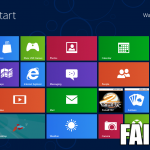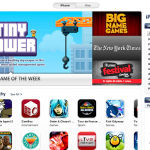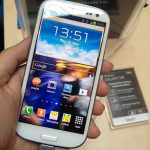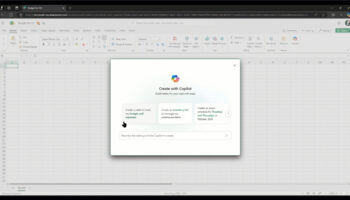LinkChecker lives up to its namesake

There are many tasks involved in maintaining a large website, but one of the most important comes in regularly validating your links. And that’s because a mass of broken links won’t only annoy your visitors, it’ll probably also reduce the search engine visibility which allows people to find you in the first place.
Help is at hand, though, in a variety of tools which aim to validate a site’s links for you. And LinkChecker is probably one of the most straightforward.
Windows 8 will flop

A technology journalist friend of mine often makes sweeping statements regarding how well he thinks a new program or piece of hardware will fare, and he’s usually completely wrong. When Ubuntu first arrived, he declared it would kill off Windows and render Microsoft an aging OS irrelevance. When Apple launched the iPad he told everyone who cared to listen that it would be a total failure because no one would want one.
I’m far less prone to making such proclamations, but I think I’m on reasonably safe ground when I say Windows 8 is going to be a dud. No version of Windows will ever be a total failure. Even Vista, which is regarded as one of Microsoft’s least successful operating systems, sold reasonably well, and I’m sure as soon as Windows 8 is released we’ll hear a lot of statistics coming out of Microsoft about how it’s the fastest-selling OS since Windows Whatever. But they’ll be statistics that we’ll have to take with a fair amount of salt.
Archos unveils new 9.7 inch mass market Android tablet

French consumer electronics company Archos on Thursday unveiled the first product in its upcoming "Elements" line of Android tablets, the Archos 97 Carbon.
Archos took its expertise in media and entertainment products and defly applied it to Android tablets three years ago. The result has been a series of enthusiast-level tablets with some totally unique and attractive features. For example, the Archos Stick was a removable USB modem built into the back of the company's Android tablets which could be popped out and used in a PC when it wasn't being used for the tablet's data connection.
Lion Designer 3.0 gives OS X 10.7 a big makeover

German developer Moritz Wette has released Lion Designer 3.0, a brand new, redesigned build of his popular Mac desktop customization tool. Lion Designer makes it possible for users to quickly change backgrounds for various OS X tools like Launchpad and Mission Control, plus restore the colourful Finder sidebar icons, among other tweaks.
Version 3.0 introduces a new graphical user interface and Example Manager for quickly downloading replacement background images. It also fixes numerous bugs, extends compatibility to OS X 10.7.4 and later, and adds Retina display support.
So much for Apple innovation: There will be 100 LTE phones available before the next iPhone

The high speed network technology known as LTE has built up a staggering momentum in the last year, despite Apple's iconic iPhone being late to the party.
There has been a good deal of speculation over whether the next generation of iPhone will include 4G LTE network support. The iPhone originally entered the mobile phone market on a 2G signal when networks were still upgrading and expanding their 3G coverage. The same is happening now with 4G, but it's gotten to the point where LTE has matured and the time seems right for Apple to adopt the technology.
Apple's App Store flub causes dozens of iOS and Mac apps to crash

A bug in Apple's App Store updating mechanism caused some recently downloaded apps to crash on startup. The issue affects several popular apps including Instapaper and Angry Birds Space, and made Fourth of July stressful for many developers.
The issue appears to have cropped up after changes in Apple's app distribution. The glitch not only affects iOS apps but also those obtained through the Mac App Store, leading some to believe the issue may reside in Apple's FairPlay DRM mechanism.
You are collateral damage in the patent wars

The patent is mostly a good thing, right? It is a way to show recognition for all the work an individual puts into developing something completely new. It’s useful in determining who creates and who copies. The system may have its kinks, but it’s a good one overall. We revolve around it each day whether we know it or not.
A patent is an easy way to make money, but these days not so much for inventing things but inventing concepts to patent. To make money from them, usually someone has to get sued. The process involves a considerable amount of money, starting with paying lawyers, paying court costs, paying for transport, hotels, meals, and so on. All these things add up and they account for every cent as to what a trial would and does cost.
PrivaZer is one of the most powerful free privacy tools we’ve ever seen

If you’ve tried a few PC privacy tools then you’ll know they’re often disappointing, doing little more than you can achieve with your browser and Windows alone (clearing your temporary folders, deleting cookies and so on).
PrivaZer, fortunately, is a genuine exception, an amazingly thorough utility which could be one of the most powerful free privacy tools we’ve ever seen.
Sorry Europe, no music, magazines or TV shows for your Nexus 7 (yet)

Google's Nexus 7 tablet made quite an impact at the I/O developer conference last week. The tablet is powered by Google's Android 4.1 operating system, a quad-core Nvidia Tegra 3 processor, and either 8GB or 16GB of storage.
What makes the tablet interesting to a lot of people is not the fact that it is running Android 4.1, nor the hardware that it ships with, but the combination of what it packs and the price that Google is charging for it. But something is missing -- that is for people living on the Continent. That combination, the package, is missing something.
PCs are still doomed and their end will come quicker than you think

A reader pointed out to me this past week that the personal computer is well over 30 years old -- a number that has real consequence if you are familiar with my work. He remembered I predicted in 1992 that PCs as we knew them would be dead by now.
I was obviously a little off in my timing. But only a little off. PCs are still doomed and their end will come quicker than you think.
Crystal Anti-Exploit Protection exposes malware tricks

Most antivirus programs focus on identifying malicious files and preventing them from reaching (or executing on) your PC, which works to an extent, but will fail if you run into brand new malware that hasn’t been discovered yet.
Crystal Anti-Exploit Protection (CAEP) is a new security tool that tries to protect you in a very different way. There’s no scanning here, no signatures, no virus database: instead the program uses its understanding of common malware tricks to try and prevent anything nasty from infecting your system in the first place.
USB Safeguard password-protects your stick

Data security is of the utmost importance, but it is usually the files stored on our hard drives or transmitted over the Internet that we are primarily concerned with. It’s likely that you have at least one USB drive that you use o move files from one computer to another, perhaps transporting files between home and office. If you were to lose the drive, there is not only the irritation of not having access to the files you need, there is also the concern that whomever finds the drive will be able to vie your private data -- this is something that USB Safeguard can help with.
As you’ve probably guessed from the name and the scenario we have set up, this is a program that can be used to protect the files you have chosen to store on a USB drive. This is a tiny portable app, weighing in at less than 100KB, but it is none the less powerful. While there is a paid version of the app available that can be used to protect drives of up to 16TB in size, there is also a free version that can be used on drives up to 2GB.
Challenge Hollywood filmmakers with Samsung Galaxy S III [review]

The Galaxy S III is a wonderful beast, whose 8-megapixel stills camera can also shoot video in full HD (1920x1080). So is this a triumph of technological democratisation? Is the Galaxy S III all you need to challenge the dominance of the Hollywood Studios and their ridiculous $200m budgets? After all, some movies are made on Digital SLRs these days. Read on to find out.
The answer is a definite, well, maybe. As I’ve noted in my review, the S3’s pictures are surprisingly good, and while it would be a stretch to say you could shoot "The Avengers" on a smartphone, there is a lot you can do with this tiny camera. It could certainly be a terrific little helper for blogging, web-reporting and almost anything else you might want to put on the Internet, or produce for home or office use. Obviously it has limitations, even when compared to dedicated camcorders of the same price point, so here are a few suggestions and tips for getting the best out of it.
Microsoft should buy RIM as soon as possible

Research in Motion is in trouble. Exactly how much trouble isn’t really clear right now, but things are looking bad.. Thorsten Heins, the current CEO, is keeping a positive outlook. He stated this week, in an interview with a Canadian radio station: "There’s nothing wrong with the company right now".
Pretty much everyone disagrees with this statement, including the stock market. At the time of writing the share price stands at under $8. This time last year it was $30. Go back to 2008 and the company was trading at $150 a share. RIM also recently announced 5,000 redundancies and losses of $518 million. Heins might say one thing publicly, but in private you can bet he is a worried man.
Do network neutrality rules violate Verizon's freedom of speech?

June 2nd marked the return shots fired by telecommunications juggernaut Verizon against the Federal Communications Commission for fines the FCC leveled on them in regards to network neutrality. In a legal brief filed in Washington DC at the United States Court Of Appeals, Verizon and regional cell phone provider MetroPCS formally appealed.
Verizon claims that the FCC forcing them to keep all data traffic equal priority is unconstitutional -- that equal priority of data is an affront to carrier's freedom of speech.
Most Commented Stories
© 1998-2024 BetaNews, Inc. All Rights Reserved. Privacy Policy - Cookie Policy.




